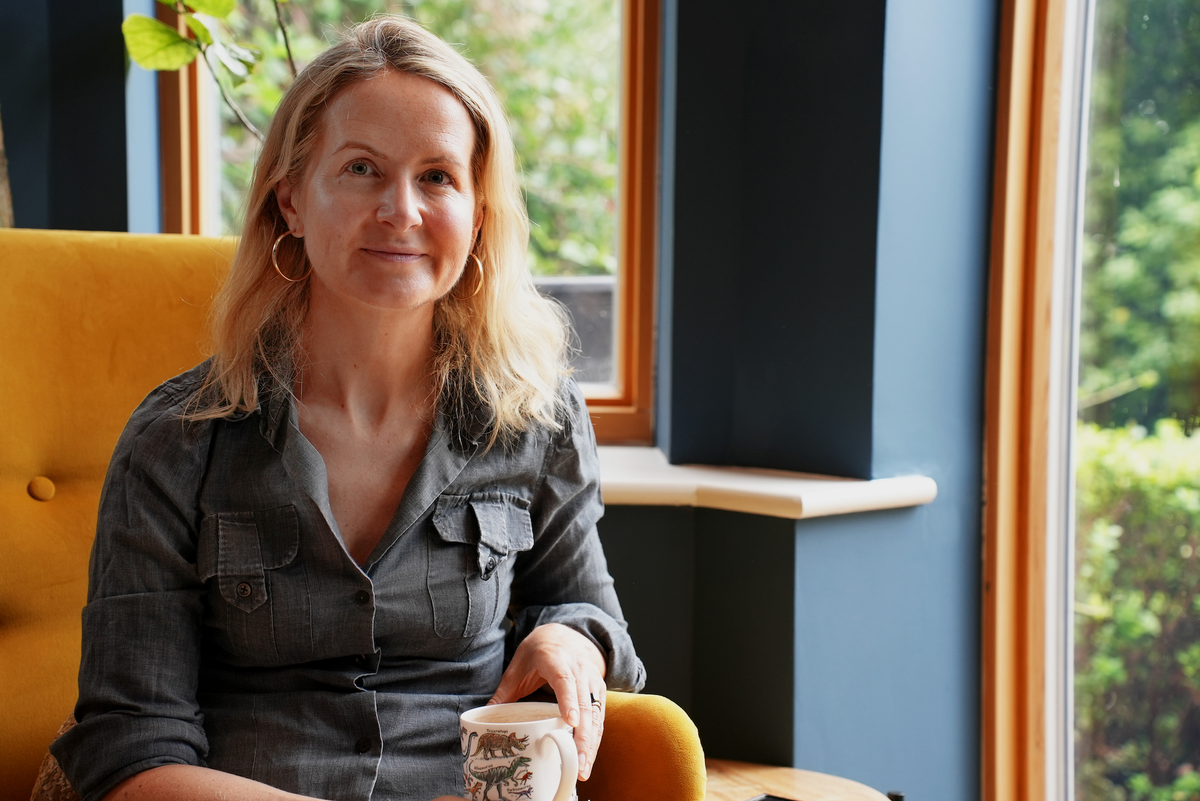Fixing Britain's broken childcare

Rachel Carrell is co-founder and CEO of Koru Kids. She campaigns to improve childcare policy in the UK.
Rachel climbed up the escalators from the London Underground. Nine months pregnant, she was on her way to pitch to an all-male panel of investors. The key to raising investment is to simultaneously attract interest from multiple parties. The investors then compete to be part of your round, allowing you to choose the best offers. However, given that more than 80% of pitches to VCs are unsuccessful, you need to be on the road meeting dozens of them in a short space of time to build a swell of interest at the right moment.
So, Rachel was racing around London while nine months pregnant. One of her traits is to reframe supposed disadvantages as advantages: Investors know you have to be a bit crazy to try and grow a start-up. They almost always fail, involve horrendous hours and high levels of stress. So, rather than seeing her pregnancy as a disadvantage, Rachel believed the message was clear. The fact that she was pitching to them while nine months pregnant proved that not only was she crazy, she was really crazy.
And it worked. Rachel raised £10m for her business, Koru Kids. This enabled her to pursue their mission to help families flourish by finding the right childcare. She believes that childcare infrastructure should be as fundamental as roads and bridges. Koru Kids recruit, train, support, and manage part-time nannies at scale.
In 2024, Koru Kids will pick up around 3,000 children after school each day. They’ve trained and managed thousands of nannies and they use the data points they collect to analyse which nannies leave the children happiest. They look at correlations between what nannies do in the Koru Kids system, what they do when they apply, how they use the platform, and then whether the child actually ends up happier with them than with someone else. They collect feedback from parents, and over time, they've been able to refine their practices to optimise the quality of the nannies that they’re working with.
The state of childcare
Rachel’s mission started when she had her first child. Once she’d personally experienced the challenges of childcare she said she ‘knew she’d hit upon her life’s work.’
British childcare costs are some of the most expensive in the world. As a result, parents can feel that they’re effectively paying to go to work. Many families with two or more children now spend more on childcare than they do on their mortgage.
The impact of childcare costs is exacerbated by the fact that many of us don’t live near or feel able to ask for help from our extended family. Women bear the brunt of the system’s flaws and often step back from their careers due to the lack of quality childcare options.
‘Our (mostly male) government underfunds the (mostly female) childcare system, and women pick up the slack - damaging their careers, their mental health and their income.’
At the same time as parents feel like they’re getting fleeced by childcare costs, nurseries are struggling to keep their doors open. Nurseries report that they’re underfunded by £2.31 per hour. One in ten childcare workers rely on food banks, one in eight earn less than £5 an hour and the average wage per hour is just £7.42.’
Rachel states that ‘The childcare sector is in complete disarray with nurseries going under, childminder numbers plummeting and parents facing enormous bills and waiting lists.’
The UK Labour government says that economic growth is their top priority. If they improve childcare then this represents a massive growth opportunity. According to a KPMG report, almost 30% of mothers with children below the age of 14 said that they’ve reduced their working hours for childcare reasons. They found that ‘increasing the employment rate among parents with children under the age of five could increase GDP by up to £11.3bn a year’.
Rachel’s work to improve childcare goes beyond creating increased consumer choice through Koru Kids. She actively campaigns to improve childcare in the UK: ‘It's a personal project and kind of an obsession of mine. So sometimes we actually campaign against our own commercial interests, but we do it because we think it's the right thing to do.’
Rachel highlights the urgency and importance of addressing the childcare crisis in the UK. Through Koru Kids, she’s not just offering a solution for parents struggling with exorbitant costs and limited options; she’s also challenging the broader system that undervalues this essential service.


Comments ()